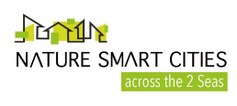Interreg 2 Seas - NSCiti2S
Introduction
Nature Smart Cities across the 2 Seas brings together a total of 11 European Partners, who will co-create and validate a business case for green infrastructure to be deployed across urban landscapes and build climate resilience to floods, heat stress and drought. Southend Borough Council is the Lead Partner. Project duration: 12/07/2018 – 25/ 02/2022.
Project
A clear knowledge gap exists for local authorities (LAs) that prevents them from deploying green infrastructure (GI) on a scale that enables urban landscapes to adapt to the future impacts of climate change and build more sustainable communities. Cities and towns are not investing in GI and the valuation tools for justifying GI on economic, social, cultural and environmental grounds are simply not being used by LAs, who instead rely on EU and national subsidies or deliver GI projects on a ‘one off’ basis. The exceptions are capital/larger cities (populations > 550,000 approx.) that have access to more finance and resources than smaller urban areas. Urban areas < 550,000 people are not investing in GI. Valuation tools for GI are simply not being used and LAs lack the ability to properly account for the direct cash benefits of GI. LAs need to be enabled to overcome market barriers to using their own city-finance to fund GI climate investments and step away from subsidy dependence.
Objectives
The main output will be a new Business Model that enables LAs in the 2 Seas to understand how they can self-finance GI climate investments and reduce dependency on subsidies to build climate resilience in their towns and cities by (WP1).
Objective 1: Step-by-step methodology and approval process (toolkit) for LAs to apply the Business Model to their own GI climate investments (WP1)
Objective 2: Delivery of 7 GI pilot projects (2x BE, 1x FR, 2x NL, 2x UK) that help develop, test and validate the Business Model (WP3)
Objective 3: Nature Smart Capacity Building Programmes that builds capacity of decision-makers at 75 LAs to help them apply the direct benefits and ‘cash’ benefits of GI climate investments to their own GI projects (WP2 and WP5)
Objective 4: 7 new strategies (1x each City Partner) detailing how they will increase the amount of green space in their urban area between 2020 and 2050 providing a long-term purpose for the Business Model and work together as ‘Green Twinned Cities’ (WP2)
Role of Ghent University
Ghent University will contribute to 3 WP: 1) development of the business model, 2) capacity building, and 3) communication. It will use its research and network capacity to validate the business model developed in WP1 with stakeholders in private industry and contribute to capacity building and communication to maximise dissemination of project results.
The proposed project supplements the ongoing efforts of Ghent University to implement insight in sustainability research in real life situations, making sure that public funding for research is used appropriately and has impact into the society.
Dutch summary
Het doel van het project NSCiti2S is het creëren van mogelijkheden om grijze inrichting te vervangen voor groene inrichting. Door het testen en valideren van het businessmodel kan aangetoond worden dat groene infrastructuur economisch een goed alternatief biedt als reactie op de klimaatveranderingen.
Groene infrastructuur (GI) biedt fantastische, vaak goedkopere alternatieven voor traditionele grijze infrastructuurmaatregelen die stedelijke landschappen wapenen tegen klimaatverandering. Grote steden implementeren GI reeds op grote schaal om problemen omtrent overstromingen en hittestress aan te pakken en hebben hun eigen economische, plannings- en gezondheidszorgsystemen die hen in staat stellen zich aan te passen aan klimaatverandering.
De uitkomsten van het project zijn:
- Uitgebreide economische business case en bewijsmateriaal voor de implementatie van groene infrastructuur (GI) in het hele 2 Zeeën-gebied. De business case moet aan lokale overheden laten zien wat de directe financiële voordelen en indirecte opbrengsten zijn;
- Een reeks van zeven GI-demo projecten die in de zes deelnemende steden worden toegepast en de ontwikkeling van de business case. Verdere versterking van de bekwaamheid en ondersteunen van belanghebbenden en besluitvormers in de steden;
- Een NSCiti2S-Programma ontwerpen om de vaardigheden en de kennis die in het kader van het project zijn op gedaan te verspreiden naar stakeholders in de zes partnersteden en 75 observerpartners overheden/organisaties.
Website
Contact
Prof. Kris Verheyen
Department Omgeving
Phone number: +32 9 264 90 27
E-mail

